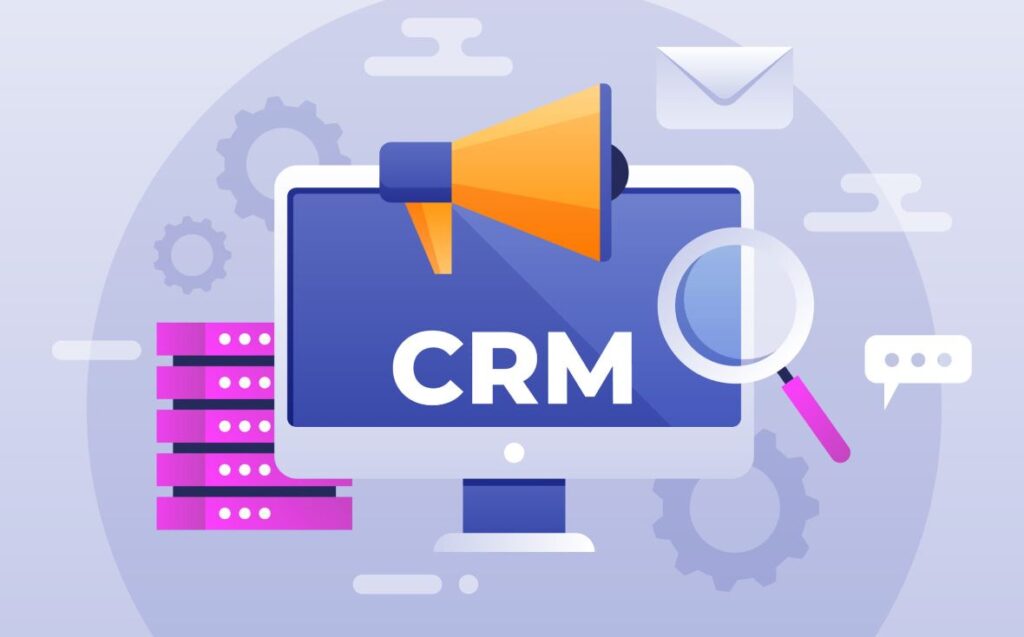Customer Relationship Management (CRM) systems are critical to business success, offering insights into customer interactions, behaviors, and preferences. However, the key to maximizing CRM’s value is understanding how to measure its success. Here, we’ll explore essential metrics, the benefits of tracking them, and the top tools to help your business evaluate CRM performance effectively.
📊 Key Metrics for Measuring CRM Success

1. Customer Retention Rate
- Definition: Tracks the percentage of customers retained over a given period.
- Importance: High retention often indicates strong customer loyalty and satisfaction.
- Calculation:

2. Customer Lifetime Value (CLV)
- Definition: Total revenue a business can expect from a single customer account.
- Importance: Helps businesses understand long-term customer profitability.
- Calculation:

3. Customer Acquisition Cost (CAC)
- Definition: Cost of acquiring a new customer.
- Importance: Essential for budgeting and evaluating marketing ROI.
- Calculation:

4. Sales Conversion Rate
- Definition: Percentage of leads that convert into paying customers.
- Importance: Indicates the efficiency of the sales process.
- Calculation:

🏆 Benefits of Measuring CRM Success
- Enhanced Customer Satisfaction: Metrics provide insights into what drives customer happiness, allowing businesses to tailor strategies to improve experiences.
- Improved Revenue: By understanding CLV and CAC, companies can refine their strategies to maximize profits.
- Optimized Marketing Efforts: Data-driven decisions enhance marketing ROI, enabling better use of resources.
- Higher Customer Retention: Retention metrics allow for better long-term planning and customer relationship management.
🔥 Top 15 CRM Tools for Effective Performance Measurement
Here’s a detailed comparison of some of the best CRM tools for tracking success metrics. Each offers unique features, pricing, and advantages.
| CRM Tool | Use Case | Advantages | Disadvantages | Price | Features |
|---|---|---|---|---|---|
| Salesforce | Enterprise-level customization | Extensive integrations, powerful analytics | Steep learning curve, expensive for small businesses | Starting at $25/user/month | Customizable dashboards, AI insights |
| HubSpot | Small to medium businesses | Free version available, excellent marketing tools | Limited customization in free plan | Free to $45/user/month | Email marketing, lead scoring |
| Zoho CRM | Affordable for SMBs | Affordable, flexible plans | Limited integrations compared to others | Starting at $14/user/month | Sales automation, customer analytics |
| Microsoft Dynamics 365 | Integration with Microsoft products | Robust for enterprise, strong AI features | Expensive, complex | Starting at $65/user/month | Custom workflows, predictive analytics |
| Pipedrive | Sales-focused | Easy to use, visual pipeline management | Limited marketing features | Starting at $12.50/user/month | Sales tracking, goal setting |
| Freshsales | Startups and SMBs | AI-based lead scoring, affordable plans | Fewer integrations | Starting at $15/user/month | Built-in email, automation tools |
| Nimble | Social media-focused businesses | Excellent for social CRM | Limited customizability | $25/user/month | Social media integration, contact management |
| Insightly | Project-oriented businesses | Great project management features | Limited reporting | Starting at $29/user/month | Workflow automation, email integration |
| Close | Sales-oriented startups | Built for sales teams, easy-to-use | Limited marketing functions | Starting at $25/user/month | Sales automation, call management |
| Copper | Google Workspace users | Seamless Google integration | Limited outside Google ecosystem | Starting at $29/user/month | Workflow automation, sales tracking |
| Keap | Small business-focused | Strong automation, excellent customer support | Limited reporting features | Starting at $79/user/month | Marketing automation, CRM management |
| Bitrix24 | Affordable all-in-one | Free plan available, team collaboration tools | Limited analytics features | Free to $39/user/month | Sales tracking, collaboration tools |
| Apptivo | Budget-conscious SMBs | Affordable, customizable | Interface can be complex | Starting at $10/user/month | Project management, custom fields |
| SugarCRM | Customizable enterprise solution | Highly flexible | Higher pricing | Starting at $52/user/month | Automation, predictive analytics |
| Zendesk Sell | Customer support-focused | Excellent for helpdesk integration | Limited marketing tools | Starting at $19/user/month | Lead management, call tracking |
🌐 Where to Buy and Transactional Details
- Purchase Directly from Official Websites: Most CRM software can be purchased or subscribed to directly from the company’s website.
- How to Buy:
- Create an Account: Sign up on the CRM provider’s website.
- Select Your Plan: Choose a pricing plan based on your business needs.
- Enter Payment Information: Most CRMs offer monthly or annual subscriptions.
- Start with a Free Trial: Many CRMs provide a free trial period; sign up to explore the tool before committing.
🌟 Frequently Asked Questions
1. What are the most important CRM metrics?
The key metrics include Customer Retention Rate, Customer Lifetime Value (CLV), Customer Acquisition Cost (CAC), and Sales Conversion Rate.
2. How often should I measure CRM metrics?
Metrics should be tracked monthly or quarterly for timely insights and adjustments.
3. Are there free CRM options available?
Yes, tools like HubSpot CRM and Bitrix24 offer free versions with essential features.
4. How can I improve my CRM’s performance?
Optimizing customer segmentation, automating routine tasks, and regularly updating customer data can improve CRM efficiency.
5. What is the best CRM for small businesses?
HubSpot CRM and Zoho CRM are highly recommended for small businesses due to affordability and ease of use.
By choosing the right CRM and tracking relevant metrics, businesses can drive growth, improve customer loyalty, and maximize profitability.